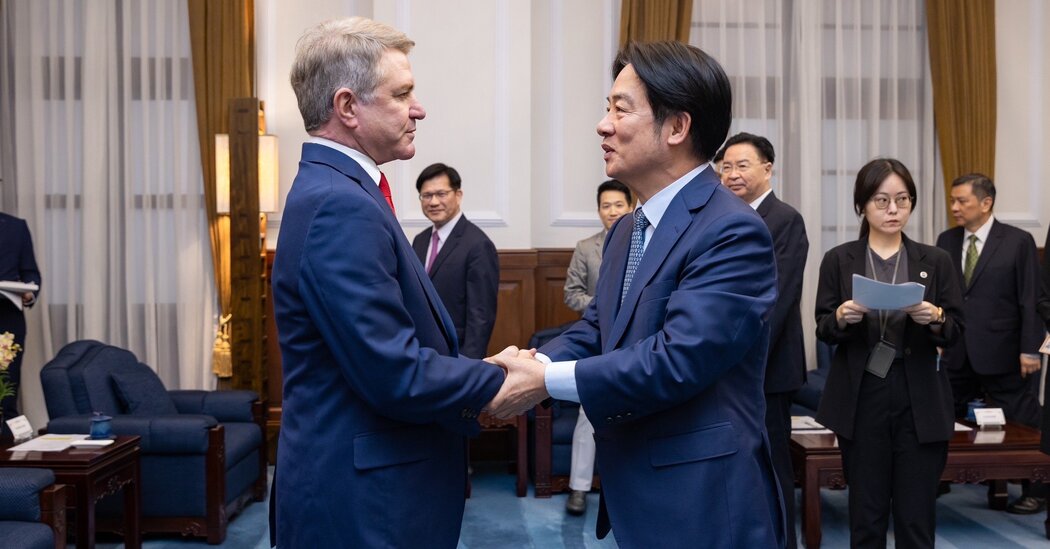Dozens of inauthentic accounts on X linked to China have been assailing Republican members of Congress running for re-election in Alabama, Tennessee and Texas, accusing them of corruption and promoting their opponents, according to a report released on Wednesday by Microsoft’s Threat Analysis Center.
Those targeted include Representatives Barry Moore in Alabama and Michael McCaul in Texas and Senator Marsha Blackburn of Tennessee. All have been critics of China and its policies, though the posts also criticized Mr. Moore for supporting Israel, frequently using antisemitic language, the report said.
The accounts are part of a coordinated influence operation known as Spamouflage.
While Chinese influence operations have sought to denigrate the American political process broadly, they have focused less on this year’s presidential race and more on down-ballot races, presumably in hopes of blunting anti-Chinese sentiment in the House and Senate. The accounts also attacked Senator Marco Rubio of Florida, who is not up for re-election this year, the report said.
Mr. McCaul, the chairman of the House Foreign Affairs Committee, called the Communist Party of China “the greatest generational challenge we face today,” in a 2020 report. China barred him from visiting the country after a visit to Taiwan last year.
One bot said he was “abusing power for personal gain,” accusing him without detailing evidence of insider trading.
A new ad for Ms. Blackburn’s re-election campaign shows her smashing plates decorated with China’s name and flag. “We’re going to have to break a lot more China to save America,” she says in it.
One account on X flagged by Microsoft suggested she accepted $700,000 in campaign donations from opioid manufacturers, referring to a six-year-old accusation from a liberal political action committee, American Bridge 21st Century. Since early October, the bots have been promoting her opponent, Representative Gloria Johnson, according to Microsoft’s report.
None of the posts went viral, even though the accounts often shared one another’s content. “While not always resulting in high levels of engagement, these efforts demonstrate China’s sustained attempts influence U.S. politics across the board,” Clint Watts, who heads the Threat Analysis Center, wrote in a post accompanying the report.
